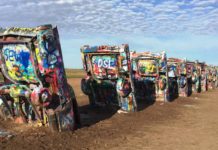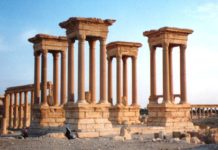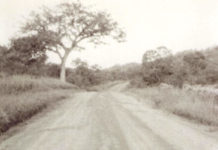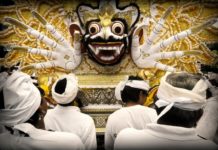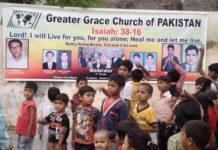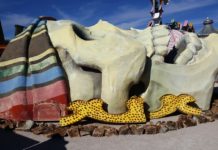For my son Will, who always enjoyed a good story
More than 58,000 Americans and an estimated 3 million Vietnamese perished in the Vietnam War which ended in a communist victory in 1975. – The Associated Press
I was a draft dodger during the Vietnam War.
It was something I never expected to be, and I had practically no time to prepare for it. I was only 19 years old at the time the United States was drafting men my age by the thousands. Because of the wartime draft, young American men unexpectedly found themselves facing the prospect of being forced to join the military and fight in Vietnam. I was terrified at the thought, and there weren’t many options.
I could either accept my draft orders and report for duty or try to get a deferment because of a physical disability or a religious objection to war. I could refuse to be drafted and face prosecution and possibly jail time or leave the country and risk losing my American citizenship.
This all happened at a time when I was just beginning to get an idea of who I was and what I wanted to do with my future. I grew up in Southern California at the end of the sixties, a time of rapid change and upheaval in America but also of great excitement. Looking back, it was probably the happiest time in my life. I was high on all the wonderful things that a suburban kid enjoyed, when suddenly my government demanded that I make a decision which would alter the rest of my life. I was either going to join the military or become a criminal.
I tried to look at my options logically. I didn’t have a physical disability, and I had no religious faith to speak of. I wasn’t ready to go to jail for the cause, but I sure as hell wasn’t going to be forced to join the Army. So, the way I saw it, that left me with only one choice – leave the country. I never had any second thoughts about that decision, although I knew what I was about to do had serious consequences.
Many men who faced this same decision are still haunted by the choices they made back then. I’ve talked to men my age who feel guilty that they didn’t resist the war and have the courage to go to jail for their beliefs. Others I’ve spoken to feel guilty about not fighting alongside their fellow Americans who went to war when their country called. I’ve met some who feel guilty because they went to Vietnam and were ashamed of the things they did. Of course, I have known plenty who served proudly and have no regrets at all.
Whether we went or not, whether we fought in the jungles of Vietnam or in the streets of America as war protesters, we all wound up being hated by one group or another. But whatever decision we made permanently changed us.
“Many people saw us as traitors to our country, cowards who disappeared into the dark of night rather than answer their nation’s call to serve.”
Emotions were high, and divisions in the country were running deep. It was the time of the popular phrase, “America, love it or leave it.” That bumper sticker was everywhere in the early seventies. It wasn’t uncommon to see where a graffiti artist had scrawled the addendum “or change it!”
There were huge anti-war marches in cities across the country, like the one in 1969 that drew over a half million people to Washington, DC. A similar incident took place simultaneously in San Francisco. These events often turned violent, like when student protesters took over the People’s Park at the University of California, Berkeley resulting in confrontations with police.
At many of these demonstrations, hundreds of young men defiantly and illegally burned their draft cards and chanted, “Hell no, we won’t go!” College campuses became major centers of opposition to the war, and the media broadcast the protests to the rest of the country. The process repeated itself nationwide resulting in massive demonstrations in Chicago, Boston, New York, Los Angeles, and Detroit.
By 1971, when I found myself facing this dilemma, the anti-war movement in the United States was in full swing. The country had seen landmark events like the trial of the Chicago Seven for conspiring to bring disruptive protests to the Democratic Convention in 1968. Also, there was the killing of four students and the wounding of nine others on the campus of Kent State University in Ohio during a war protest on May 4th, 1970.
A year later, Daniel Ellsberg, a Vietnam expert with a high-security clearance, leaked a classified report in what became known as The Pentagon Papers. These documents clearly showed that the government knew how unlikely it was that the war could ever be won. It also showed cruel and reckless disregard for the loss of life they would ensure by prolonging the fighting.
One part of The Pentagon Papers contained a report written by Defense Secretary Robert McNamara to President Lyndon B. Johnson. It concluded that the situation was “very disturbing” and it would lead to “neutralization at best and more likely to a communist-controlled state.” That grim assessment was written in December 1963, nearly a decade before the war would end. The result of this information becoming public knowledge was a game changer, a final exclamation point of justification for the American anti-war movement.
“None of us could justify being forced by law to go halfway around the world to kill people who were not threatening us.”
It was in the middle of all this chaos that I, along with an estimated 30,000 to 100,000 American men, chose to simply leave. We decided to walk away from our country of birth rather than face the option of being drafted to fight a war that we despised, and we despised it on so many levels.
We saw how the war was affecting our country, how it was dividing families and pitting fathers – who were often war veterans themselves – against their sons. We also hated what we saw it doing to so many of our soldiers, from the exposure to poisonous chemicals like Agent Orange to the horrific physical and mental injuries many of them brought home.
Those of us who refused to participate, those of us who just walked away, were called “draft dodgers.” Many people saw us as traitors to our country, cowards who disappeared into the dark of night rather than answer their nation’s call to serve. Some Americans felt that anyone who opposed the war was a traitor.
The truth was that some of those in the war resistance movement, especially the ones who refused to serve and went to jail, also saw us as cowards. In a way, that hurt me the most. They viewed people like me as weak. At least they could say that their actions stood for something. To them, the willingness to go to jail exemplified their opposition to the war in a way that dodging the draft could not.
Some people believed that someone else would have to serve in a draft dodger’s place. They had a good point. It was easy for guys like me to figure out how to dodge the draft. The majority of us who found a way to beat the system were white, educated, and somewhat affluent. Consequently, it was mainly minorities and those from lower-income families who fought in the Vietnam War. A lot of them just couldn’t afford doctors or lawyers to get out of it.
I loved America then, and I love it now. Without exception, the draft dodgers and war resisters I’ve met all say that we’d gladly take up arms and fight to defend our country if it were being attacked. But none of us could justify being forced by law to go halfway around the world to kill people who were not threatening us. We didn’t think it was our role to stop them from becoming something our country didn’t want them to be.
I was just one of the many patriotic Americans who opposed the Vietnam War, just one of the many who objected to our government coming into our lives and demanding military service from us. So, I did what I needed to do.



